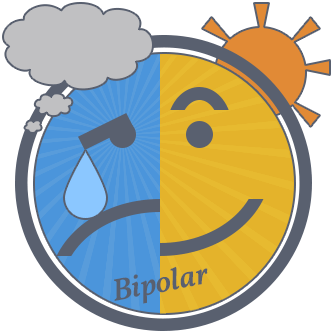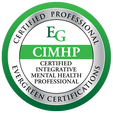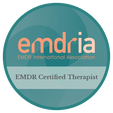|
Have you been diagnosed with bipolar disorder and been told by your doctor or psychiatrist that this is a lifelong disease,often inherited, and uncontrollable without medication? Do you believe them? Though I am not a doctor, I can say that most doctors who are good at what they do will tell you that a patient’s healing journey begins with how much they believe they can actually heal. So, the question is begged then, why are many told bipolar is not curable? I will allow you to venture your own theories, but mine is that it all boils down to lack of knowledge, making more profit, and having more control.
What is true is that people with bipolar disorder have experienced brain changes over time that are not quickly and easily reversible; however, that is a long way from saying they are not ever reversible. These changes can occur as a result of trauma, stress, poor nutrition, drug inducement, and others. Though it is true that having family members with bipolar increases one’s risk of also having it, it is not clear whether this is more genetic or more a learned social behavior. Also, most doctors have limited to no training in medical school about the impact of nutrition and other lifestyle decisions on either physical or mental health. In this article, 5 ways will be presented on how you can take control of your own mental (and physical) health and begin to improve and reverse your condition safely and naturally. 1. Improve your diet. An unhealthy brain typically lives inside an unhealthy body. Look at what you’re eating (and not eating), and you might better understand why your brain is struggling. Mood disorders are made worse behaving unstable blood sugar. Think of it like this: mood follows sugar. When you eat a lot of sugar (including sweets, sodas, and baked goods) or white starch, your blood sugar and mood shoot up, then crash 15-30 minutes later. You feel exhausted, irritable, foggy. If you want to control your mood, control your sugar. Eat either 3 normal sized meals or 5 smaller sized meals, whichever works best for you. Make the bulk of your meals fruits, vegetables, whole grains,legumes/beans, nuts and seeds. These foods are high in fiber and protein, which cause blood sugar to be more stable. Have smaller amounts of animal products; one serving per day is enough. Eat less at restaurants, which soak foods in sugar, salt, and oil to make them “tasty” so you’ll become addicted. Also, avoid eating packaged foods full of chemicals, hormones, and genetically modified ingredients, contributing to gut and systemic inflammation, nutritional deficiencies, including the inability of your brain and nervous system to manufacture the hormones they need to regulate properly. Healthy foods that enhance brain power include blueberries, pomegranates, avocados, whole grains, beans, nuts & seeds, fish,green tea, and dark chocolate. Another simple tip is to keep yourself hydrated by drinking at least 3-4 bottles of water per day; this will help your brain work better, reduce headaches, clean out toxicity and waste more efficiently, and make you less thirsty, so you might better avoid liquid temptations like soda, coffee, and alcohol, all of which are not great for your mental or physical health. 2. Supplement. Along the lines of nutritional deficiencies, consider the following nutritional supplements to boost your brain’s performance. Omega fatty acids are essential for brain health, and they reduce inflammation in your whole body. They are instrumental in the makeup of the myelin sheaths over your nerve fibers, equivalent to the rubber coating over copper wire to prevent electricity from escaping the wire before it reaches its destination. The diet of most Americans is severely deficient in this nutrient, since most of us do not eat fish/seafood, flax, chia, hemp, or walnuts on a regular basis. Further, the omega 6’s found in most of the other plant oils we eat actually make it harder for our bodies to absorb omega 3’s. To counter this problem, supplement with either 1000 mg of fish oil or 1 tablespoon flax oil (tablets or bottle)daily. Refrigerate the flax oil to keep it from spoiling, and keep the fish oil in the freezer so it melts rather than bursting in your stomach, to prevent acid reflux. Also consider adding B vitamins (also found in whole grains, legumes, nuts, seeds), which are known to help the brain function better, especially when it’s under stress. Another important supplement known to reduce inflammation and improve brain power by creating new brain cells and improving memory, is turmeric (or curcumin), a yellow root which is available in powder form (take 1 or 2 capsules per day) or you can add it to recipes. This root is what makes Indian food yellow. Finally, gut health is now thought to be far more important than earlier assumed, and the gut is now being called the “third brain,” since it contains a nexus of thousands of nerve fibers, appears to communicate directly with the brain and heart, and manufactures most of the chemicals our nervous systems need to regulate. Consider taking a good quality supplementation daily, preferably in the morning before your first meal, to make sure your gut is populated with healthy bacteria. This is especially important for those taking antibiotics or other drugs, which tend to destroy gut flora. Going up to two capsules a day might be necessary while taking any kind of drug and for weeks afterwards. 3. Get your sleep. Those with bipolar disorder know that sleep is an issue. People in manic or hypomanic stages often skip sleep believing they can“make it up later.” Our bodies don't work like that. Less than 6 hours of sleep is clinical sleep deprivation and causes brain impairments in most people, especially after several days, weeks or months. Aim for a minimum of 7 to 8 hours of sleep each night. Create a sleep culture to help you sleep better, including using white noise, wearing eye covers and earplugs, removing all electronics from your bedroom, and using it only for sleep and sex. You can also use 1 or 2 capsules of valerian root an hour before bedtime to make you sleep more easily and deeply without any side effects, as well as consuming a relaxing sleepy time or chamomile tea in the evening and avoiding any caffeine after noon. Also, avoid drinking too much fluid after dinner,to avoid having to get up during the night to use the bathroom. Hydrate throughout the day with one bottle of water in the morning, 1 in the afternoon, and 1 later in the afternoon or early evening. 4. Move your body, preferably in nature. There are so many benefits to being out in nature, it’s amazing so many of us think we can be the only animal in the world that barely ever goes outside. Sunlight is great for your health and mood, and the Vitamin D it causes your body to make is not just vitamin, but also a hormone used to regulate among other things your nervous system. Have you heard of SAD or Seasonal Affective Disorder? This is a very real depression that comes basically from too little sunlight, usually in the winter. Not to mention that outside air has 10 times the air quality of inside air, which means more oxygen, more energy, more mental clarity. The random movements of clouds, trees and grass blowing in the wind, light dancing, all have relaxing and balancing effects on our nervous systems, as does swinging our arms bilaterally while walking. Exercise improves circulation of all fluids, elimination of toxicity,strength, overall health, and most importantly, mood! 5. Manage your stress. It can’t be emphasized enough that stress accumulates and is the “number one killer,” worse than all others. Without stress management, the brain becomes overwhelmed, the mood tanks, and the bodily systems all take a hit. What are some ways to best manage stress? Well, all of the above suggestions will reduce systemic stress and especially keep your brain happier and healthier. In addition, having supportive relationships with positive friends, keeping active doing things we enjoy, doing work we basically like, and practicing active stress management areal important. What is active stress management? That would include practicing deep breathing, listening to guided relaxation tapes, listening to relaxing music, taking relaxing baths with candles and music and essential oils and Epsom salts, practicing tai chi or yoga, getting massage, even having safe and loving sex with a partner. Find a method that works for you and do it regularly, at least every other day (or every day even better). What about drugs and alcohol? Though it’s true many with bipolar disorder, self-medicate in this way, not only are these effects short term, but drugs are addictive,take more and more quantity to do their job, and destroy our health, finances,and relationships. Just say no and get help if you cannot. If you are able to put these changes into effect, no doubt you will be well along with way to recovery. Should you simply abandon your prescribed medication right away and commit to this path? That is not recommended, as it will take time for your body to adjust to change, even positive change. It would be better to put these changes into effect, see if your moods and energy levels stabilize, and then consider reducing your medications gradually and evaluating the effect, preferably while working with a licensed mental health care provider to insure you’re safe and getting the proper support. Most importantly, if you believe you can heal yourself, you will be that much closer to actually doing just that, instead of relying on high doses of toxic medications your whole life!
0 Comments
Your comment will be posted after it is approved.
Leave a Reply. |
AuthorKen Pataky, MS, LCHMC/LMHC, CLC/CHC, is a compassionate Holistic Psychotherapist, and Transformational Life & Health Coach who is passionate about helping YOU create your best life. Archives
June 2023
Categories |
Services |
Company |
|


 RSS Feed
RSS Feed



